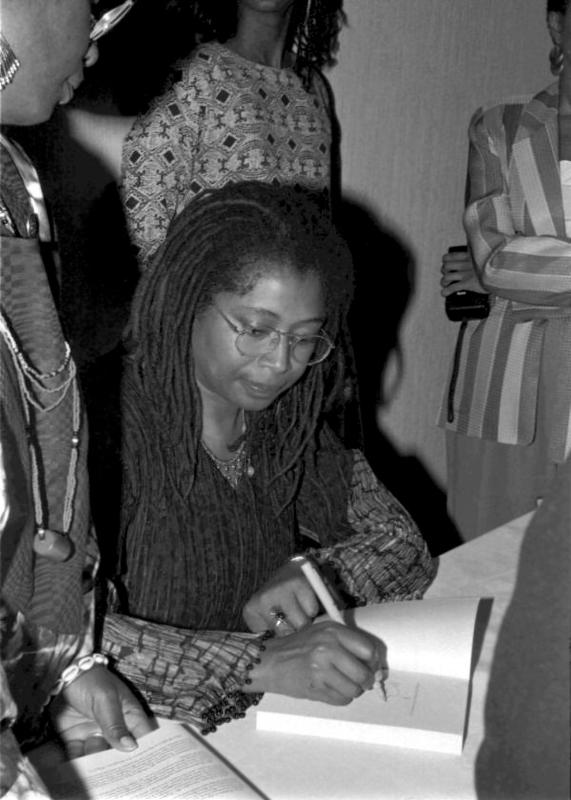1970

Alice Walker signing autographs at the Zora Neale Hurston Festival of the Arts and Humanities in Eatonville, Florida. Photo by Nancy Nusz, courtesy of the State Library and Archives of Florida
In 1983, Alice Walker became the first Black woman writer to win the Pulitzer Prize. Walker received the honor for her third novel, The Color Purple, which also garnered the American Book Award. The novel was later adapted into an Oscar-nominated film directed by Steven Spielberg and starring Whoopi Goldberg, Danny Glover, and Oprah Winfrey.
More than a decade before the publication of The Color Purple, Walker was one of 41 emerging writers to receive an NEA Discovery Award in Literature. The Discovery awards preceded the adoption of the blind panel system, and these grants were awarded based on financial need as well as artistic quality. Walker used her grant to complete her first novel, The Third Life of Grange Copeland. Upon its publication, the Chicago Daily News called the novel "a most promising first novel, and an unusual book to come from a young black writer." Walker has since published more than 30 books of fiction, nonfiction, and poetry.
Born in February 1944 in Eatonton, Georgia, Walker was the youngest of eight children. She became active in Georgia's Civil Rights movement before leaving home to attend Atlanta's Spelman College. Her activism was discouraged at Spelman, so Walker transferred to New York's Sarah Lawrence College, graduating in 1964. At Sarah Lawrence, Walker's poetry was championed by poet Muriel Rukeyser, who helped the young writer publish her first book of poems, Once.
In 1970, the same year as her NEA grant and the publication of her first novel, Walker started a short story on voodoo. In her research she came across Mules and Men by the early 20th-century Black writer Zora Neale Hurston. The discovery of Mules and Men led Walker to Their Eyes Were Watching God, which she considered—along with Jean Toomer's Cane—one of the most influential books of her life. Walker became an advocate of the late writer's works, editing a volume of Hurston's prose in 1979 and even locating Hurston's unmarked grave in a Florida cemetery and paying to install a headstone. Ms. magazine published Walker's article about her quest for Hurston's burial spot, thereby reigniting interest in Hurston's work.
In addition to the Pulitzer Prize and American Book Award, Walker's honors and awards include Guggenheim and Merrill Fellowships, a fellowship from the Radcliffe Institute, a National Book Award nomination, and numerous honorary doctorates.

